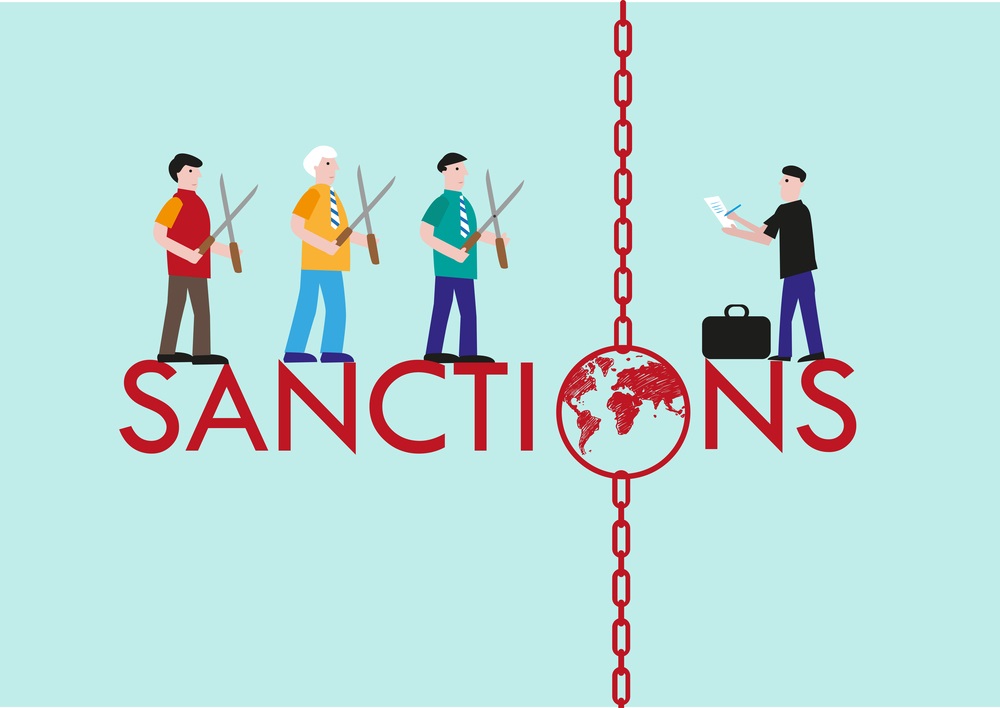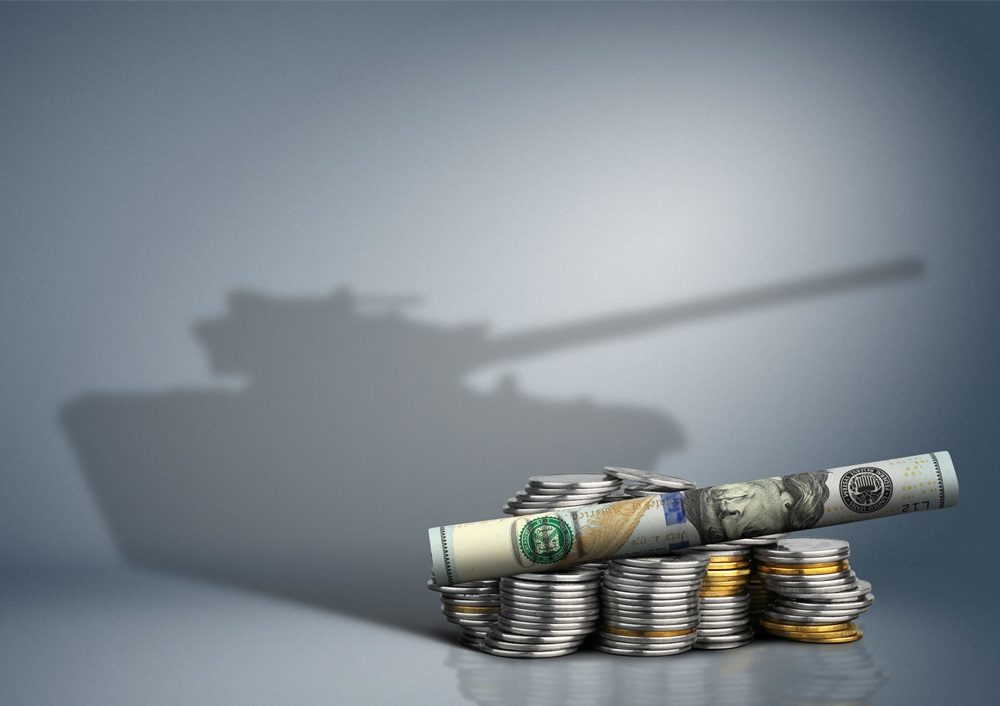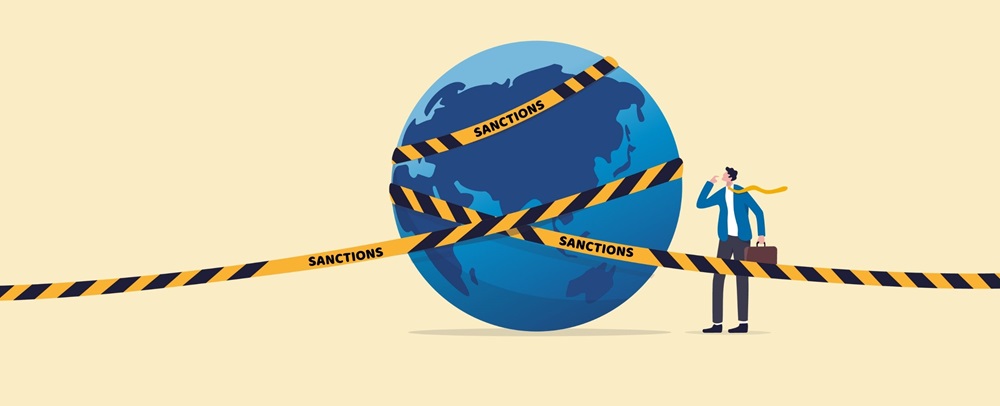War and economic sanctions shape our world’s politics like few other forces. I’m peeling back the layers of this complex power play to show you how these global tactics affect nations and people just like us. We’ll dive into the anatomy of these sanctions and their impact, shaking economies and lives worldwide. But it’s not all doom and gloom; understanding the geopolitical strategies behind them can illuminate how countries navigate these choppy waters. And as we wade through the financial warfare consequences on nations and civilians, we’ll see the human faces behind the headlines. So stick with me, and let’s explore the future of international relations—where sanction strategies and the pursuits for fairness collide.
The Anatomy of Economic Sanctions and Their Global Impact
Understanding the Impact of Economic Sanctions
Economic sanctions are like time-out for countries. They are a way to punish or change how a country acts. These actions can be because a nation did something wrong, like not playing fair with others or breaking international rules. Other countries join forces, stop trading things like food or tech, or block money from coming in or going out. This puts pressure on the nation to change its ways.
The goal is to make the leaders feel this sting, hoping they will act right. But it’s tricky. Often, regular folks, not just the leaders, feel the hurt. Food may get scarce, jobs can disappear, and life gets harder for people living there. This is the heavy weight of sanctions. It’s a big deal because it impacts the whole country, not just one person or place.
The Ripple Effects of Trade Restrictions on Global Economies
When a country faces trade restrictions, it’s like a big roadblock in global trade paths. If one country can’t buy or sell, others linked to it feel the wave too. Trade is like dominos – knock one over, and you can bet others will fall. Factories may slow down or shut, people lose work, and less money goes around.
For example, if Country A can’t sell its goods, Country B can’t buy what it used to. Prices go up because there’s less supply. Countries might have to find new partners, but that takes time and cash. Global trade is a huge web of deals and relationships – snip one thread, and the whole thing can get shaky.
So imagine a world where countries use trade as a weapon. When one blocks another, it’s not just goods that get stuck – it’s the ideas, the culture, and the people. Jobs that were there yesterday might not be there tomorrow. It’s a powerful move, and it shakes up not just one country’s economy but the whole world’s.
Sanctions can change the face of world trade. Some countries may become friends to avoid being alone if sanctions hit. Others might search for new ways to keep their economy strong. It’s like a big game, where everyone is trying to stay ahead and not get caught without a partner to trade with.
Trade restrictions can be like a fire that spreads. If it isn’t controlled, it can burn a lot of bridges and hurt economies everywhere. Sometimes, countries work out issues and lift restrictions. Other times, they dig in, and people must get creative to deal with the new normal.
In the war of money and trade, economic sanctions are big guns. They can make a country think twice before doing something that upsets others. Even though adults make these rules, it’s often the regular people, like you and me, who must deal with the fall out. And as we all live on this same planet, what happens in one spot can ripple out and touch us all in some way.
Geopolitical Strategies Behind Sanction Implementation
Crafting of Smart Sanctions and Their Targeted Efficacy
Leaders think hard when they choose sanctions. They aim straight, like arrows, at bad actors. Smart sanctions hit specific targets. Think of them as a sniper’s bullet rather than a bomb. They aim for military folks, politicians, or businesses doing wrong. This keeps everyday people safer. But are smart sanctions sure to work? Not always. Sometimes, those who do wrong find sneaky ways to dodge them.
Smart sanctions help to avoid harm to innocents. These sanctions let food and medicine through. They freeze crooks’ cash and stop their travel. Leaders like smart sanctions because they reduce harm to common folk. The hope is to change bad behavior without a fight. Yet, this needs countries to work as a team. If one country lets a crooked leader slide, smart sanctions falter. Keeping everyone on board is a tough task.
Economic Blockades as Tools of International Diplomacy
Blockades link trade and power. They block goods and money. This puts pressure on countries to change or give in. A blockade is like cutting off the fuel to a car; without gas, there’s no go. It’s both a shield and a sword. A blockaded country finds fewer friends. Their wallets shrink, and shelves go bare. It’s a message: “Play fair or face the cost.”
Economic pressure can make countries think twice. When goods don’t flow, people get upset, and leaders get nervous. Blockades can stop war or force peace. But let’s not forget: civilians often bear the brunt. Less food, medicine, and jobs lead to suffering. It’s a grim game of chicken. Will the blockaded bend or stay stiff?
And then there’s the other side. Countries that enforce blockades may lose money, too. Trade goes two ways. When they cut off someone else, they also lose. Sometimes, they find new trade pals. Other times, it’s a scramble to fill the gap.
Leaders must weigh the risks and rewards. They must ask if the goal is worth the squeeze. They must predict who will flinch first. It’s a high-stakes game on a world stage. All eyes watch to see if pressure will crack the stubborn or if the caged will fight back.
Sanctions, smart or broad, are complex tools. They juggle morals, money, and might. The world powers consider them among their strategic game pieces. They tread a delicate line, seeking to swing the tide of geopolitics. Their impact can sway nations, reshape economies, and alter history’s course. The right sanction at the right time might lead to triumph. But when used with little thought, they risk harm to the very values they aim to protect. Understanding these tools is key for those who wish to unlock the intricate dance of international relations.
Consequences of Financial Warfare on Nations and Civilians
The Humanitarian Toll of Embargoes and Asset Freezes
When countries fight without guns, money becomes a weapon. Let’s talk about embargoes. They stop trade with other places. This means basic goods get scarce. Countries also freeze assets to block cash flows. This hurts daily life, making it hard for people to buy what they need. Imagine not finding food or medicine in stores. That’s what happens. These actions can make prices shoot up too. People struggle to make ends meet when money loses value fast.
Embargoes and freezes force folks to change their lives. Kids might not get medicine. Families can’t afford food. Schools and hospitals suffer. It’s tough all around. Powerful countries use these tools often. They want to push other nations to change. But it’s the common people who feel the most pain.
One might ask: Does this really work? The answer isn’t simple. Yes, it creates pressure. But no, it doesn’t always change the country’s ways. Many times, leaders don’t suffer. It’s the people who do. And that’s a heavy price to pay.
Strategies Used by Nations to Circumvent Sanctions
Now let’s peek into the clever moves countries make to dodge sanctions. They find new friends to trade with. Nations that don’t agree with the sanctions step in. They swap goods and help each other. This is like a game of tag where you can’t be touched if you’re on base.
Some countries hide their ships and change their names. This way, they sneak past the rules. Others use digital money, like Bitcoin, to move cash without banks. It’s like using secret passageways to get your allowance.
Then there are fake labels. A country may say a product is from somewhere else. Like putting a sticker on a toy saying it’s from your friend’s house, not the store.
Another trick is barter. Countries trade things directly. Like trading your sandwich for a pal’s cookies at lunch, no money needed.
Countries also play the long game. Building their own stuff, so they don’t need to buy from others. Think of it like planting a garden, so you don’t need to go to the store.
Every move and counter-move is part of a big, global game. Some win, some lose, but life goes on. It’s all about staying strong, even when times are hard.
The key, my friends, is to remember the faces behind the figures. Data and dollars mean a lot. But the stories of people matter most. We can’t forget the human side of these silent battles.
Future of Sanctions and International Relations
Analyzing the Game Theory in International Sanction Applications
Let’s play a game of choices. When countries clash, they often use sanctions. These are tough rules to harm an enemy’s economy. It’s like a chess game with money and trade on the board. Each move, like a sanction, changes the game. One side wants the other to act right. But does it work?
Imagine two countries at odds. They think, “If I hit their money, will they give up?” It’s tricky. If one moves, the other reacts. They try to guess the next step. It’s all about making smart moves.
Game theory helps us see this. It says, “Think about the other player.” We ask questions. Will sanctions make them change? Will they find friends to help them out? It’s a balance. We want them to act right without hurting others too much.
Sometimes, they don’t work as planned. A country may not bend. People may suffer. It’s a serious game of actions and results.
Sanctions are not just rules. They are moves in a big, global game. Smart ones hit leaders, not people. Others, not so smart, can harm everyone.
The Search for Equitable Sanction Relief and Mitigation Strategies
Sanctions hit hard. But what about the people living through them? When food and medicine are scarce, we need to help. We ask, “How can we ease the pain?”
We look for relief, for ways to make things fair. It’s a search for balance. Can we target the bad actions but still help those in need? Yes, it’s possible.
There are strategies, ways to let help come in. We can make sure aid reaches folks in need. We can tweak the rules for food, health, and more. It’s a kind hand in a tough time.
Can we do better? Always. We learn and adjust. We make sanctions smarter. We want to block the bad, keep the good flowing.
When we talk relief, it’s about hope. It’s about helping folks live better, even when their leaders are on the wrong path. It’s a job not done alone. Countries, groups, and experts all chip in.
Mitigation means lessening the sting. We want to ease the troubles sanctions cause. It’s about finding the best way to stand up to wrongs but not harm folks who did no wrong.
Finding the right balance is key in this tough game. It’s not about winning or losing. It’s about standing up for what’s right while also being fair.
In this post, we dug into how sanctions shake up the world. We saw their deep reach and the ways they can hurt or help nations. From trade blocks to smart strategies, sanctions are big moves on the global chessboard. They can protect or punish, but we can’t forget the real people they touch. Some countries find ways to dodge these tough rules, yet not without struggle.
Looking ahead, the game of sanctions will keep changing. Nations will look for fair ways to ease the pain without giving up their goals. As an expert, I’d say we must balance power with care. We want a world that’s safe but also kind to all its people. I hope this talk on sanctions makes you think deeper about their role and weight. This matters everywhere, from big halls of power to small homes around the globe.
Q&A :
How do War and Economic Sanctions impact global markets?
Economic sanctions and war can severely disrupt global markets by creating instability and uncertainty. Sanctions limit trade and investment opportunities, potentially causing shortages and price volatility. War heightens these effects, further impacting supply chains and escalating risk, which can lead to decreased investor confidence and market crashes.
What are the long-term economic consequences of War and Sanctions for the involved countries?
Long-term, war and economic sanctions can devastate national economies. Infrastructural damage and the diversion of resources to military efforts impede economic growth. Sanctions can isolate countries from global trade, limiting access to markets and resources, leading to long-lasting economic stagnation and hardship.
Can economic sanctions be an effective tool to encourage political change?
Economic sanctions are often employed with the intention of compelling political change without military intervention. Their effectiveness varies, with success depending on the target country’s economic resilience and the unity of imposing countries. However, sanctions can also bring unintended harm to the civilian population and need to be carefully weighed against their political objectives.
How do countries typically respond to economic sanctions?
Countries on the receiving end of economic sanctions may try to adapt by seeking new trade relationships, turning to black market sources, or developing self-sufficiency. Political responses can range from seeking diplomatic resolutions to retaliating with their own set of sanctions, potentially escalating tensions.
What are the humanitarian impacts of War and Economic Sanctions?
Both war and economic sanctions can lead to significant humanitarian crises. War directly endangers lives and destroys infrastructure, while economic sanctions can cause shortages of essential goods, like food and medicine, increasing poverty and suffering. Both can lead to displacement and exacerbate health and social issues within affected populations.






